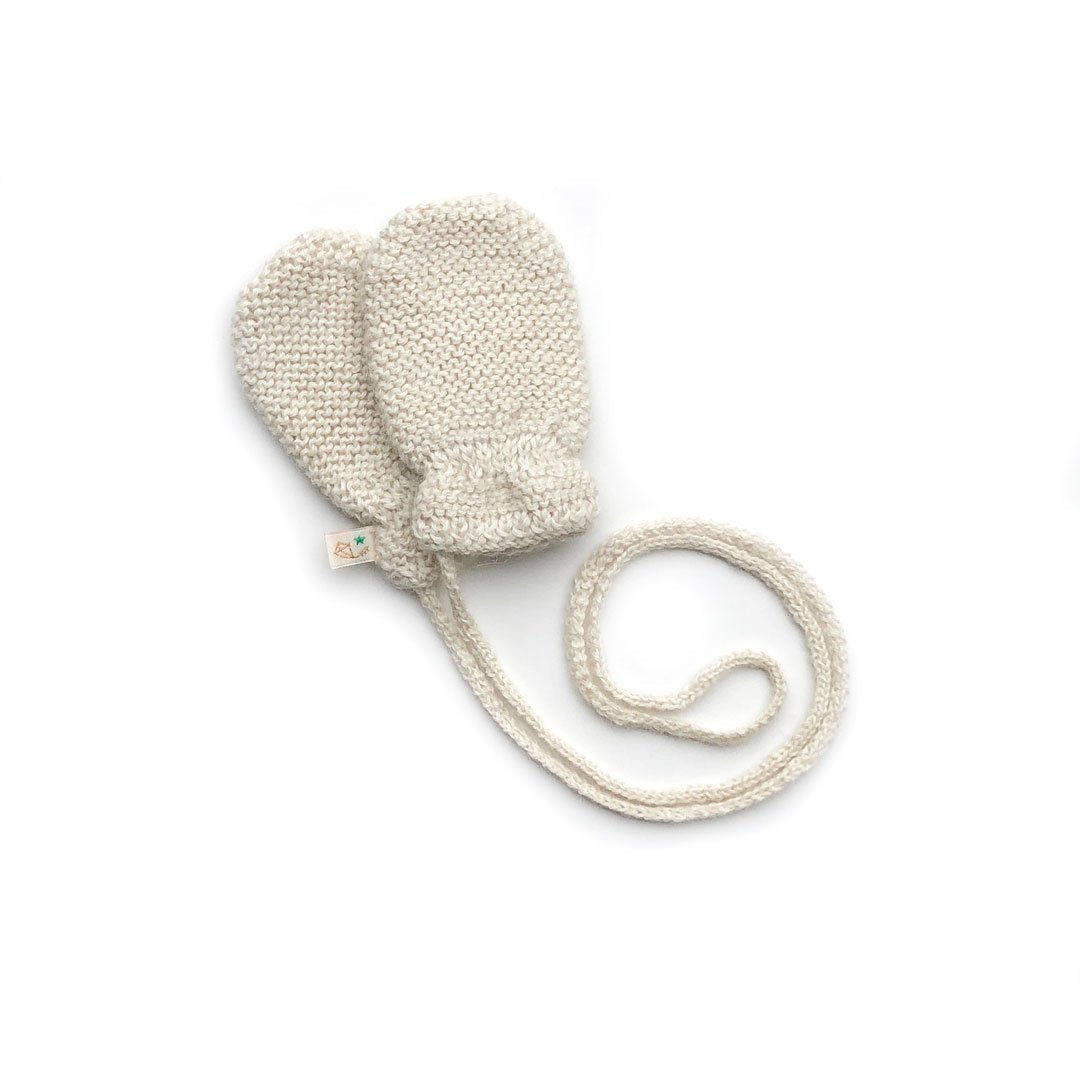

Dimaro Baby Gloves ARCHIVE
- 100% premium baby alpaca
- One size 0-6M
- Cord and cuff keep the gloves in place
- Matches nicely with our wool fleece overall
- Sustainable & ethical production
Our first version of knitted baby mittens in silky soft. Knitted in Peruvian baby alpaca with a soft elastic around the wrist. A string between the gloves keeps them in place. We love the fine cuff - a design detail that stands out and gives a classic look.
- Full length of mitten 10 cm, from elastic to top 7.5 cm
- One size 0-6 months
- Made in Peru
Baby alpaca has several unique properties that make it a perfect material for babies. The softness is wonderful and the material has an insulating effect. This allows the booties to retain warmth in cooler temperatures and breathe when the heat rises. So excellent to have in the cart. Alpaca production is also generally more sustainable than other premium wool types, e.g. cashmere. That, and other reasons to choose baby alpaca for baby, you can read more about here.
SPECIFICATIONS knitted collection
- 100% Peruvian baby alpaca
- Made in Portugal
Shipping and delivery
DELIVERY TIME AND COST OF SHIPPING
SWEDEN. Cost: We offer free shipping for orders over SEK 499, otherwise it costs SEK 49. Once you have placed your order, our warehouse will process it and ship the goods to you. Delivery time: If you place the order on a weekday before 10 am, it will be shipped the same day, otherwise the next weekday. This means that you will have the item with you in 1-3 days from ordering, provided that nothing happens with the postal delivery.
NORWAY / NORDIC REGION / EU. Cost: Enjoy free trackable shipping on orders over SEK 1200, otherwise it costs SEK 99. Delivery time: Once you have placed your order, our warehouse will process it and ship the goods to you. If you place the order on a weekday before 10 am, it will be shipped the same day, otherwise the next weekday. The service used is trackable PostNord Trackable Utrikes
- Denmark, Germany, Spain, Portugal, Austria: 3-4 workdays
- Norway, Finland, Spain, Iceland: 4-5 workdays
The delivery times are of course always contingent on postal service conditions.
OTHER COUNTRIES. Please contact us at help@coindereve.com for notification.
Duties, Taxes and Fees on International Orders
EU. We are responsible for any additional costs for delivery within the EU. This means that you only pay the price of the item and delivery if applicable.
NORWAY. Coin de Rêve is registered with VOEC, so you won't encounter any customs or additional fees.
OTHER COUNTRIES. Orders outside the EU may be subject to VAT, customs and other taxes/fees. For more information on this, contact your local tax office/local customs authority.
COMBINE COLORS
Choose options


